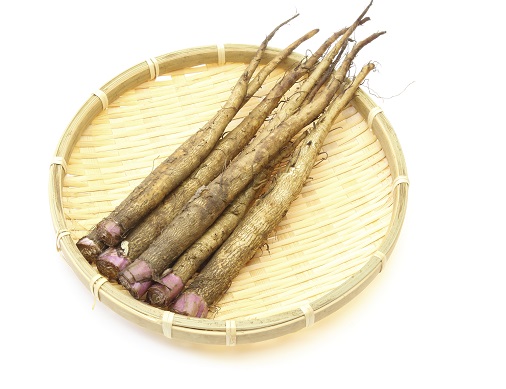 Burdock root (arctium lappa, niu bang zi, lappa) is the 12 inch long starchy root of the burdock plant, a member of the asteraceae family that also includes ragweed and daisies. Both the burdock root and its leaves are eaten as a carbohydrate rich tuber in Eastern European countries, similarly to potatoes and carrots. In Japan, it’s cultivated and eaten as a vegetable called Gobo.
Burdock root (arctium lappa, niu bang zi, lappa) is the 12 inch long starchy root of the burdock plant, a member of the asteraceae family that also includes ragweed and daisies. Both the burdock root and its leaves are eaten as a carbohydrate rich tuber in Eastern European countries, similarly to potatoes and carrots. In Japan, it’s cultivated and eaten as a vegetable called Gobo.
The plant has bright purple flowers, and now grows all over the world, having originated in Europe and Asia. Burdock is often where the spiky round burrs that you find attached to your dog’s ankles after a walk in the meadows come from.
More importantly, burdock root is one of the classic “magical herbs”. For hundreds of years, Traditional Chinese Medicine and Ayurvedic medicine have recommended it for detoxifying, removing impurities, and as a diuretic.
Since an overload of toxins and an unhealthy liver is commonly believed to be the true cause of acne, burdock is one of the more popular herbal supplements on internet forums…
…but could it simply be pure marketing hype? The truth is that burdock’s main detoxification power is total nonsense, but it still has some promising acne powers.
The claim – burdock helps to detoxify acne causing toxins
Google “burdock root for detoxification” and you’ll find all manner of claims. According to the internet:
ONE: burdock root increases perspiration and removes toxins through the skin.
TWO: herbalists worldwide have used burdock root as a blood purifier for hundreds of years.
THREE: burdock increases blood flow to the skin and displaces stored toxins there.
FOUR: burdock root aids detoxification by supercharging the liver.
FIVE: burdock root aids detoxification by supercharging the kidneys.
Many acne patients have been enticed by these miraculous claims, but many have then wasted their time too. There’s little explanation of how burdock actually achieves these benefits.
There’s no study showing increased removal of toxins through urine, or any classic symptoms of a potent detoxifying agent. The main origins are Traditional Chinese Medicine or Ayurvedic Medicine, schools of health which are often informative, but often superstitious too.
If a webpage authoritatively states that burdock root cleanses the liver’s impurities, then the author is likely taking traditional, alternative medicine as gospel and not being scientific. That’s well-meaning naivety then, but there’s also shady businessmen.
Read Annihilate Your Acne – learn to prevent acne and stop just treating it!
“X herb aids detoxification” is generally the fall back story for marketers who want to sell a herb but lack any evidence of its miraculous benefits. Don’t be a sucker for the detoxification industry and their fantasies!
Some herbs have proven detoxification powers, including milk thistle, which increase glutathione. Plus, many herbs with the “detox” label slapped on them have other interesting powers, including burdock root.
But the “detox industry” is full of more nonsense than any other area. Burdock root is not proven to aid detoxification.
You don’t need herbs to detoxify yourself
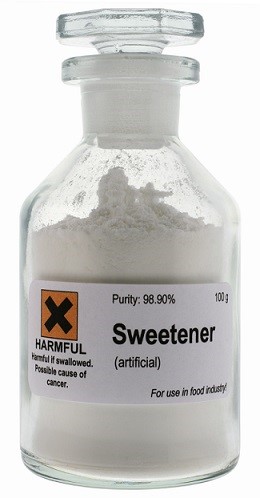 Furthermore, the whole connection between detoxification and acne is overblown anyway.
Furthermore, the whole connection between detoxification and acne is overblown anyway.
The classic internet theory is that when your liver gets overloaded with toxins, it resorts to plan B: pushing them out through the skin. The toxins react with p.acnes bacteria, and acne is born.
But there’s not a shred of evidence to support that theory. Liver heath is somewhat important for acne; for instance, a fatty liver caused by high sugar consumption can cause extremely oily skin…
The top 6 vitamins and minerals for clearing acne forever
…but liver flushes and extensive detoxification protocols are pointless. Toxins are not stored in your liver. Chemicals, heavy metals, pesticides and herbicides are actually stored in your fat cells, alongside other toxin depots. Once there, they can impair insulin sensitivity and add to chronic inflammation by making your immune system chronically overactive.
However, you don’t need magic herbs, the type sold by crazy hippies and idiotic fitness celebrities, because every human alive already has a potent strategy you can use within a day. All you have to do is stop eating for a while. You see, when your body has gone without consuming calories for 10-12 hours, a process called autophagy begins.
That’s when your cells begin to remove waste materials from themselves, including toxins like phthalates, mercury and whatever else burdock is supposed to remove.
Autophagy is one of the most basic functions of the human body. It happened constantly during the Palaeolithic era. Think about it: we didn’t have food available all the time. We couldn’t guarantee that we would successfully hunt a gazelle or deer…
So in between, our cells were removing toxins regularly. It’s a basic evolutionary mechanism which should ideally be triggered on a daily basis, but nowadays we’re eating non-stop.
Why burdock root won’t work
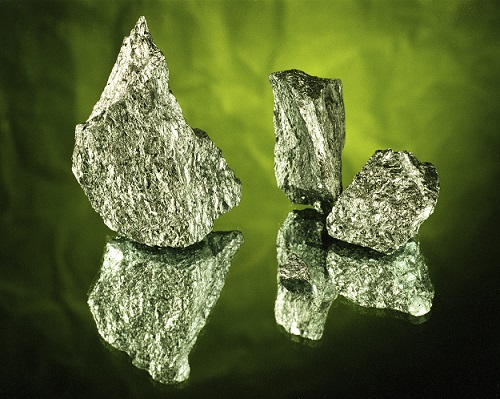 Dietary gurus preach strategies like eating 6 small meals per day, every three hours. Many people are scared of not eating, because they’ve been warned of unstable blood sugar.
Dietary gurus preach strategies like eating 6 small meals per day, every three hours. Many people are scared of not eating, because they’ve been warned of unstable blood sugar.
Cereal manufacturers have proclaimed that “breakfast is the most important meal of the day”, while fitness gurus insist that after 10 hours of fasting your body enters starvation mode.
In reality, for temporarily supercharged detoxification, you should skip breakfast and follow the dietary system known as “intermittent fasting”.
Recommended – the 7 greatest natural topical treatments for acne
Basically, you eat two large meals per day, separated by 6 hours, giving you 18 hours without eating and roughly 8 hours where you enter autophagy mode. During fasting, you may notice that the toilet becomes your new home; that’s because your kidneys are flushing out all the toxins.
Better, intermittent fasting is totally free. Boosting glutathione is another great detox strategy. There’s no denying that environmental toxins cause acne, but burdock root is probably pointless.
Real acne powers – burdock root lowers inflammation
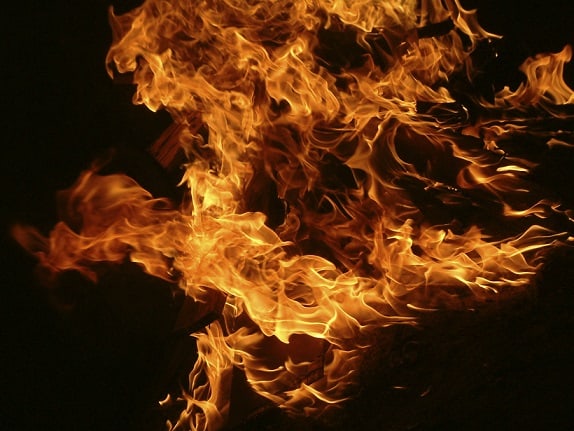 If you’re about to bin your burdock root supplement, then hold on, because it’s not completely useless. Burdock root can reduce chronic inflammation, the number one cause of acne, according to this study.
If you’re about to bin your burdock root supplement, then hold on, because it’s not completely useless. Burdock root can reduce chronic inflammation, the number one cause of acne, according to this study.
10 men and 26 women aged 50-70 years old were fed either 1) three cups of burdock root tea daily, half an hour after a meal, or 2) three cups containing boiled water daily.
The burdock root tea significantly lowered three bloodstream biomarkers of inflammation: interleukin-6 (IL-6), C-reactive protein and malondialdehyde.
That’s great news for acne because this study found higher levels of interleukin 6 in acne-prone skin than average. The scientists concluded that “Arctium lappa L. (burdock) root tea improves inflammatory status and oxidative stress in patients with knee osteoarthritis”.
Chronic inflammation is the main reason why pimples are born in the first place. How could burdock achieve these powers? The exact mechanism is unknown, but burdock root does contain medicinally useful compounds like tannins, arctigenin, arctiin, beta-eudesmol, caffeic acid, and chlorogenic acid.
Why bread and pasta are a massive cause of acne
Chlorogenic acid is responsible for the heart protective and anti-inflammatory effects of coffee. Arctigenin is a lignan antioxidant shown in this study to inhibit NF-kappaB, a master molecule that controls many pro-inflammatory chemicals behind acne. Arctigenin reduced TNF-a, IL-6 and IL-1beta.
Beta-eudesmol also suppressed NF-KappaB, and the immune mast cells which churn pro-inflammatory chemicals out (study).
Therefore, burdock root has great promise as an anti-inflammatory supplement.
The study above also found an excellent reduction in oxidative stress, AKA free radical overload, which causes acne by depleting important antioxidants like vitamin E. Scientists found that burdock tea reduced malondialdehyde and thiobarbituric reactive substances, two widely used biomarkers of blood free radical levels.
The scientists also measured two bodily manufactured antioxidants – superoxide dismutase and glutathione, which rose substantially and slightly respectively.
Burdock root – a possible digestive aid
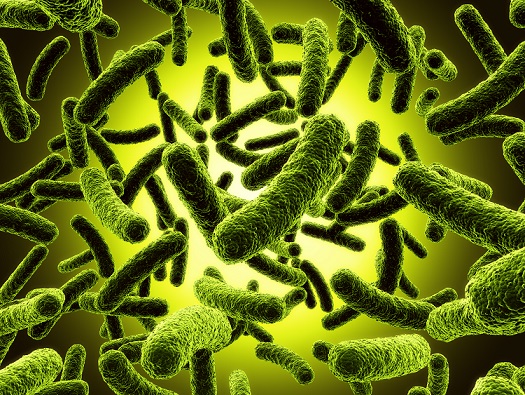 Out of all the historical uses mentioned in Ayurvedic textbooks and Traditional Chinese Medicine, the one most backed up by science is easily stimulating digestion.
Out of all the historical uses mentioned in Ayurvedic textbooks and Traditional Chinese Medicine, the one most backed up by science is easily stimulating digestion.
The burdock root is very high in a starchy fiber called inulin (not to be confused with the hormone insulin). Inulin has a strong prebiotic effect; your friendly strains of gut bacteria feed off it, allowing them to expand their colonies.
In this study, burdock inulin was applied to healthy bacterial strains called bifidobacterium, which reside in your gut and protect against harmful pathogens like candida. Chicory inulin, long-chain inulin and fructooligosaccharides (another prebiotic) were also tested.
Apparently, burdock inulin was the most effective, increasing both bifidobacterium and lactobacillus bacteria significantly.
Transfer this from a petri dish to your gut and burdock root has great potential. Beneficial bacterial strains can enhance acne nutrient digestion and absorption, lower inflammation throughout the body, and restrain the proliferation of acne-causing yeasts in your gut like candida.
Some can actually manufacture the stress-busting happiness hormone serotonin, and stress is one of the biggest causes of acne ever.
Burdock root contains tons of inulin because it is most heavily concentrated in root plants, also including garlic, onions, and agave bulbs. Furthermore, the specific type of inulin in burdock root caused no side effects, no abdominal discomfort or bloating.
Why zinc supplements can reduce acne by 49.8%
The scientists concluded that “inulin extracted from edible burdock showed prebiotic properties that could promote health”.
So given these two tentative powers, is burdock root a recommended herbal supplement, despite its detoxification power being unproven?
The answer is that burdock root might help your acne. Alternatively, it could be utterly useless for acne. The evidence is far too thin. The anti-inflammatory powers could be too weak, while the prebiotic powers have only a single study.
Burdock root’s testimonials are a mess
Many acne patients on the internet report positive experiences:
- “My skin is completely smooth and no longer the oil slick it used to be. I am thrilled.”
- “I just noticed fewer spots popping up after about a week, and things got better and better from there.”
- “After two and a half months I’m completely clear from acne except for one or two pimples”.
- “After my first week of taking burdock root, I was still breaking out. After my second week, the acne breakouts have greatly diminished.”
But many other acne patients were much less impressed:
- “I tried some herbal tablets containing burdock but they did nothing for my acne.”
- “I took burdock root for months, and saw very little improvement.”
- “I have been taking Burdock for 5-6 days now, and I’m still breaking out with acne, and worse than before.”
What this evidence suggests is that burdock root depends heavily on your bodily circumstances. In fact, the prebiotic inulin is known to trigger allergy like-symptoms in some people. That’s why the acne-friendly garlic and onions can still cause pimples in people with impaired gut flora.
This study on topical burdock observed flare ups of dermatitis, a skin condition characterised by red rashes and inflammation very similarly to acne. However, this study found that eating burdock root “may have beneficial effects in the treatment of allergic diseases, including atopic dermatitis”. That would be great for acne patients.
One thing is for certain: this herbal supplement remains shrouded in mystery.
The verdict
So does burdock root work for acne? I honestly cannot say and I can’t give it an official Supernatural Acne Treatment endorsement.
But what’s interesting is that some people’s stories are fantastic. One woman claimed that she had acne for 14 years, but only a burdock root supplement ever cured her.
Therefore if you’re rolling in cash, or have exhausted every other strategy we recommend, then you never know; burdock might cure your acne. It does have anti-inflammatory and digestive benefits. Just don’t fall for the detoxification madmen!
You’ll need a supplement with a high concentration, freedom from controversial additives like magnesium stearate, and no harsh processing which degrades the nutrients. Some manufacturers also cut and splice their burdock pills with belladonna, which has side effects like dizziness and disorientation.
Hence, this Oregon’s Wild Harvest Burdock is perfect. It’s made with organic burdock and free from any fillers, BPA and GM material.
Either way, never ignore the basic dietary strategies for acne: avoiding sugar, feasting on fruits and vegetables, taking a vitamin C supplement, and many more.
NEXT: read the 167 page eBook and get the ultimate diet for acne
Thanks for reading!

Sorry….you are wrong.
It is you who is wrong.
Richard Wolfstein, don’t be rude with your comments. Everyone is entitled to their opinion. Burdock Root has been proven to be beneficial to many so enjoy a cup. Cheers!